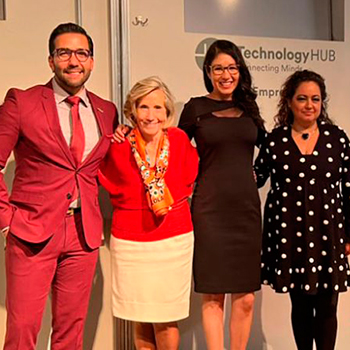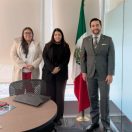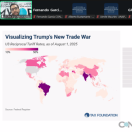In order to know the characteristics, benefits, obligations and compliance of the Immex programs, a refresher course was given for companies.
The Manufacturing, Maquiladora and Export Services Program allows the correct administration and control of customs services.
Several experts participated in the training course and evaluated topics of interest regarding the updating of customs processes.
It was aimed at finance managers, comptrollers, accountants, auditors, foreign trade personnel, lawyers, customs agents and attorneys, consultants and academics.
In the first place, José Luis Reyes Portillo, magistrate of the first north-central regional chamber of the Federal Court of Administrative Justice, participated.
He explained some relevant aspects in terms of economic compensation for foreign trade.
He mentioned that the flow of goods increased and generated errors in the pedimentos. This led customs to urge individuals to prove the legal importation of goods.
“This means that companies and individuals have to prove that the merchandise was imported and as a result is returned to them. Once this procedure is initiated, the authority gives a result, we go to trial, we win it and then it turns out that the merchandise no longer exists and here the compensation of the payment comes into play, “he explained.
After 10 days, the merchandise can be donated or sold by customs
He explained that the customs authority must allocate the goods under a precautionary embargo of 10 days.
“However, the owner has up to 10 days to prove the carrying of the goods and it may happen that between now and the presentation, the authority has already given it destination,” he warned.
The expert advised a quick response from the business community, because if not, the merchandise would be sent elsewhere.
Then, Mario Olivas Rodríguez, director of Foreign Trade Consulting, gave the second presentation.
The topic “Important aspects to consider in foreign trade operations focused on Immex companies” was discussed.
Olivas highlighted the latest changes in foreign trade rules.
“Regardless of the health issue, in economic matters, our country continues with a commercial leverage with the United States. However, in the last period we have a good rebound with respect to the trade surplus. Not so for what is the complete trade balance. That affects us with the imbalances especially with the automotive industry, “he said.
It was the turn of Evelyn Rodríguez Campos, director of Exende Abogados, who explained some 2022 tax reforms focused on Immex companies.
“In the particular case for pure maquiladoras, it has a modification in the ISR law, they were subject to a preferential regime: the APA is eliminated, which was terrible for the maquiladoras, because it was considered to be in disuse,” he explained.
Another modification is the Diemse informative declaration. In case it does not appear in June, it will not be able to apply any preferential scheme, he explained.
He advanced an explanation of the VAT reform, which creates Article 4A.
The authority confuses the entrepreneur with modifications to VAT in foreign trade
“The authority is wanting to put a kind of jiribilla with the explanation in this article. Especially with non-objective activities, with a view to modifying the figure of accreditation, “he said.
For her part, María Cervera, founder of Proconsult and advisor of Index, spoke about a guide to annexes 24 and 31 for Immex companies.
One of the main obligations of a company is the control of its temporary inventories through an automated system, known as Annex 24.
In addition, to certify VAT and IEPS, they must administer Annex 31, according to the information generated from the Annex 24 system.
The expert recommended controlling temporary inventories of raw materials and fixed assets. He also suggested validating the expiration terms of the merchandise. Also, review taxes paid and the correct information with what the authority handles.





